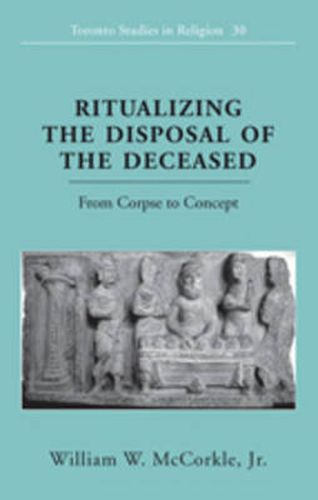Readings Newsletter
Become a Readings Member to make your shopping experience even easier.
Sign in or sign up for free!
You’re not far away from qualifying for FREE standard shipping within Australia
You’ve qualified for FREE standard shipping within Australia
The cart is loading…






Ritualizing the Disposal of the Deceased traces mortuary behavior from the early fossil record to modern religious contexts in diverse cultural settings. By using archival and ethnographic evidence from Buddhist traditions, the author highlights the disparity between doctrines that contradict actual practices performed by Buddhists themselves. By appealing to the evolved cognitive architecture of human minds, this book argues that ritualized disposal behavior is the by-product of mental systems designed to handle living people. Due to complex social intelligence, humans are compelled to handle dead people in ritualized behaviors and to represent them in counterintuitive ways. The author also examines the professional religious guilds that have taken advantage of these ritualized compulsions over the last several thousand years, by giving and controlling the meanings behind these actions. Furthermore, experimental evidence is given to support this hypothesis, providing the first mature cognitive and evolutionary theory for mortuary behavior by humans.
$9.00 standard shipping within Australia
FREE standard shipping within Australia for orders over $100.00
Express & International shipping calculated at checkout
Ritualizing the Disposal of the Deceased traces mortuary behavior from the early fossil record to modern religious contexts in diverse cultural settings. By using archival and ethnographic evidence from Buddhist traditions, the author highlights the disparity between doctrines that contradict actual practices performed by Buddhists themselves. By appealing to the evolved cognitive architecture of human minds, this book argues that ritualized disposal behavior is the by-product of mental systems designed to handle living people. Due to complex social intelligence, humans are compelled to handle dead people in ritualized behaviors and to represent them in counterintuitive ways. The author also examines the professional religious guilds that have taken advantage of these ritualized compulsions over the last several thousand years, by giving and controlling the meanings behind these actions. Furthermore, experimental evidence is given to support this hypothesis, providing the first mature cognitive and evolutionary theory for mortuary behavior by humans.